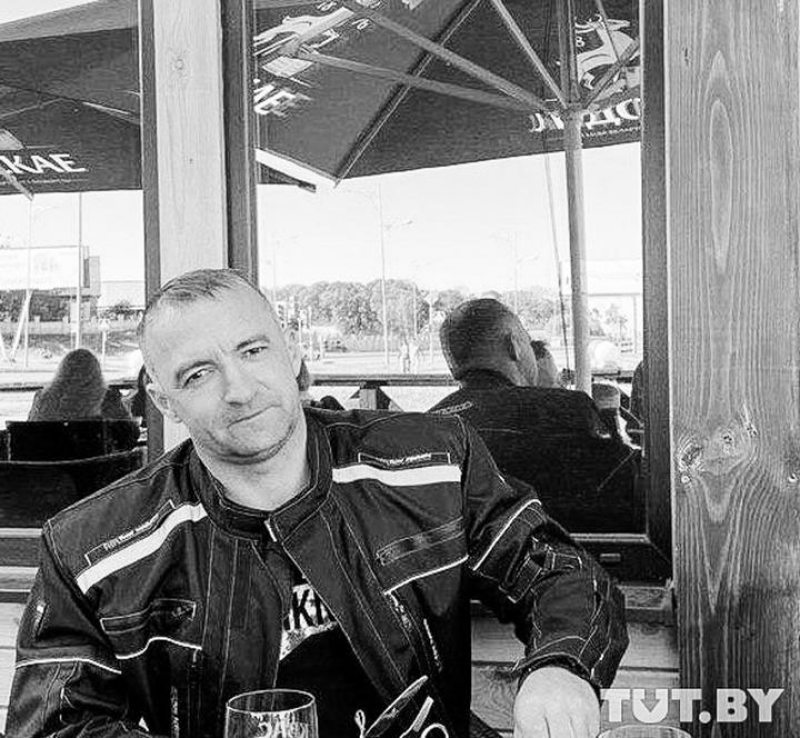Amnesty International: Witness in police killing of protester faces life sentence
Belarusian authorities are attempting to cover up the killing of a peaceful protester by police by bringing serious criminal charges against a key witness, Amnesty International said today.
Alyaksandr Kardyukou was with his friend and fellow protester Henadz Shutau until moments before the latter was shot by plain clothes police on 11 August, after a peaceful rally in the western city of Brest. Now Alyaksandr is charged with the attempted murder of a police officer, which carries a maximum sentence of life in prison.
“There is no evidence that Alyaksandr Kardyukou participated in or advocated for violent activities. He is a prisoner of conscience being prosecuted solely for the peaceful exercise of his human rights including freedom of peaceful assembly, and to justify the extrajudicial execution of Henadz Shutau. He must be immediately and unconditionally released,” said Marie Struthers, Amnesty International’s Eastern Europe and Central Asia Director.
“The Belarusian authorities must answer for egregious human rights violations, including mass arrests and widespread violence against peaceful protesters, which took place during the crackdown on dissent around contested election results."
More than 1,000 people are at present unlawfully prosecuted for their political views, in an ongoing crackdown triggered by mass protests in August. The protests erupted after the official announcement of a landslide re-election of President Alyaksandr Lukashenka. The announcement ignored widespread allegations of mass electoral violations.
Shot in the back of the head
As per a video published by MediaZona, Henadz Shutau and Alyaksandr Kardyukou were sitting on a bench some distance away from the site of the August 11 rally, when they were approached by three police officers in plain clothes. The footage does not show clearly what happened next but, less than a minute later, Henadz was shot in the back of his head. He died on 19 August.
Alyaksandr ran away moments before the shots rang out, but was arrested on 14 August and initially charged with resisting police. However, according to his sister, on 2 December the charges were changed to attempted murder.
The Ministry of Interior insisted in a press release that “a group of aggressive citizens armed with metal bars assaulted the police officers. They were not deterred by warning shots. The officers used firearms to defend their lives and health.”
However, these claims contradict video footage, witness accounts and medical records obtained by Amnesty International which show Henadz Shutau was shot from behind.
Henadz's daughter, Anastasiya Baranchuk, told Amnesty International that local residents said one of the officers had asked the men who they had voted for in the election. Her father answered: “For [Svyatlana] Tsikhanouskaya”, the opposition candidate.
According to Baranchuk, her father was then told to kneel and to lie down. As soon as he kneeled, an officer hit him on the forehead with a gun and then shot him in the back of his head. Witnesses reported hearing a total of three shots.
Henadz Shutau’s family has demanded an investigation into his killing. However, on 3 September, the Investigative Committee, a stand-alone government agency for investigation of serious crimes, sent them a letter stating that there were “insufficient grounds for opening a criminal investigation under Article 139” (homicide).
“I believe they [the Investigative Committee] know who killed my father,” Baranchuk said. “But they won’t do anything about it. Only when things change in our country [will they] punish him.”
Mass prosecutions
Local and international human rights organizations have collected hundreds of testimonies from detainees who have been subjected to torture and other ill-treatment. To date not a single investigation has been opened by the Belarusian authorities against law enforcement officers.
The human rights NGO Vyasna estimates that approximately 1,000 criminal cases have been opened against those who took to the streets to protest peacefully. Dozens have already been convicted following politically motivated and unfair trials, with the majority receiving custodial sentences.
Cases include:
- Natallia Hersche, 51, sentenced to two-and-a-half years in prison on 7 December for resisting arrest and removing a balaclava from a riot police officer
- Maksim Pauliushchyk, jailed for two years on 8 December for spray-painting “We Will Not Forget” on a pavement
- Stefan Lazavik, 27, sentenced to 12 months in prison on 1 December for spray-painting a slogan allegedly insulting President Lukashenka on a bus shelter
“Belarus is facing its most serious human rights crisis in its post-independence history,” said Marie Struthers.
“We urge the international community to step up its efforts to document grave human rights violations committed by the Belarusian authorities. Those responsible must be brought to justice in fair trials and victims and their families must be granted justice and effective remedies.”


















